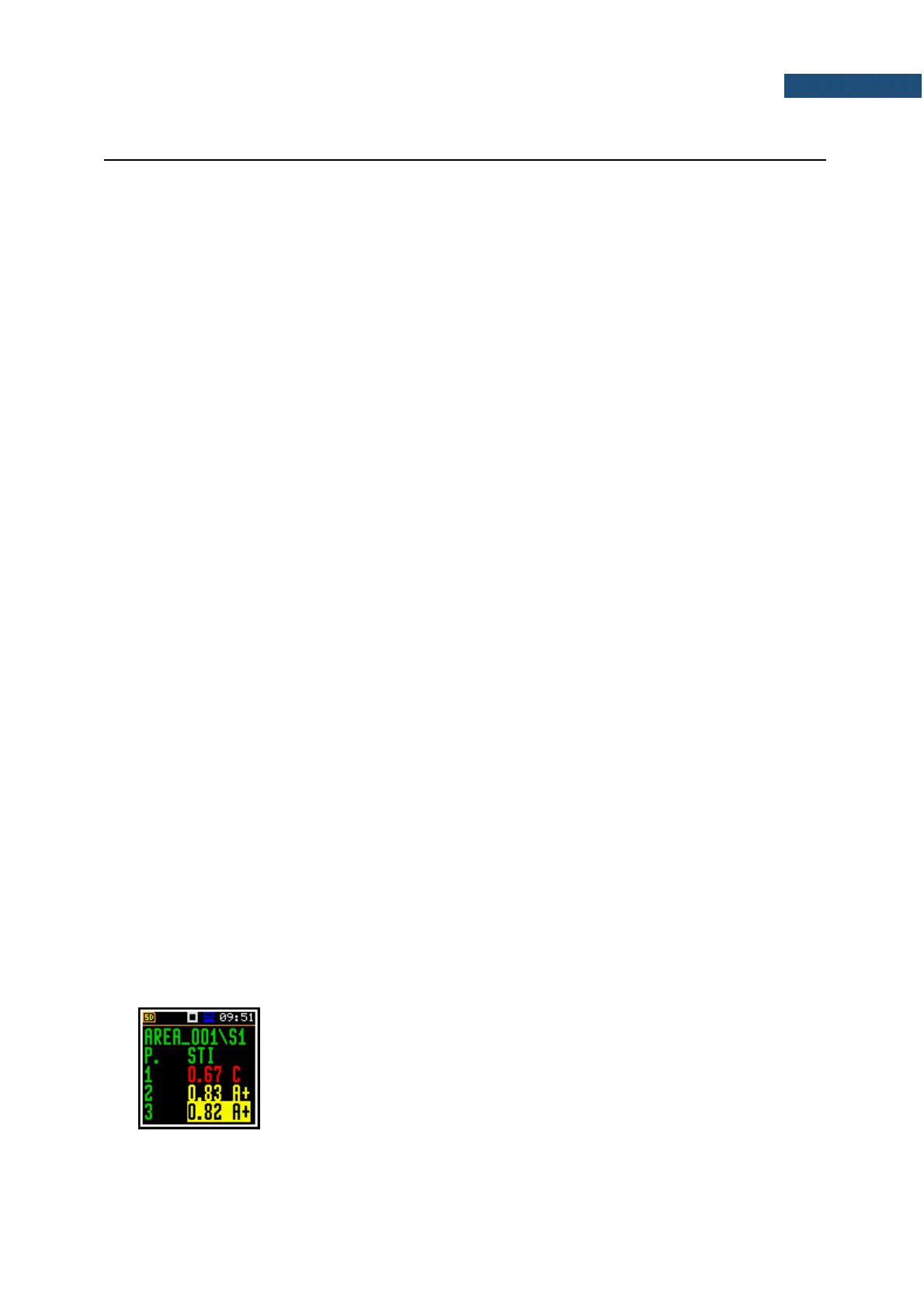STI measurements usually relate to objects (buildings), which may consist of several areas (rooms) in
which measurements are made in a given number of points (in practice, from 1 up to several dozen). In
addition, especially in case of assessing speech intelligibility in a room on the directly, i.e. without an
amplification system, tests are performed for a given number of source positions (in practice from one to
several). It may happen that a given area is examined in several configurations - e.g. a theatre hall with
a raised and lowered curtain, or a rail vehicle at a standstill and while moving. The result for a given point
is obtained on the basis of several measurements (in practice from 1 to 6) - most often as an average
value. Analyses are performed independently for areas in a given configuration.
The STIPA function enables measuring and calculating the next results:
• STI - Speech Transmission Index representing the transmission quality of speech with respect
to intelligibility by a speech transmission channel, ranging between 0 and 1. STI is calculated for
individual measurements and averaged for the measurement point and for the area.
• Avg. – averaged STI or CIS result for the measurement point.
• Δ – difference between maximum and minimum values of STI index obtained for the
measurement point of the tested area.
• LAeq – A weighed time-averaged sound level for 15-seconds integration period, in dB.
• LCeq – C weighed time-averaged sound level for 15-seconds integration period, in dB.
• LZeq – Z weighed time-averaged sound level for 15-seconds integration period, in dB.
• LAS – time weighted sound level expressed at observation time (15-seconds integration period),
in dB.
• m(f1), m(f2) - modulation transfer ratios as a function for two modulation frequency per each of
7 octave bands, ranging between 0 and 1.
• CIS - Common Intelligibility Scale
.
• σ - standard deviation of measured STI indexes for the tested area.
• Min – minimal STI value obtained within measurements.
There are some additional indications:
• The STI qualification band: A+ trough U (see Annex G to IEC 60268-16:2011).
These results are displayed in different views:
• Area view is a main STIPA view that allows you to create new measurement points, delete
measurement points or exclude them from the calculation of averaged indexes for the Area as well
as to go to the selected Point view. This view presents a list of measurement points and next results:
o Averaged STI or CIS indexes with consideration of the Ambient
noise distortions for measurement points.
o The STI qualification band (A+ through U) is displayed for each
measurement point.
Red colour of the STI/CIS result indicates errors or disruptions
detected during measurements in this point.
